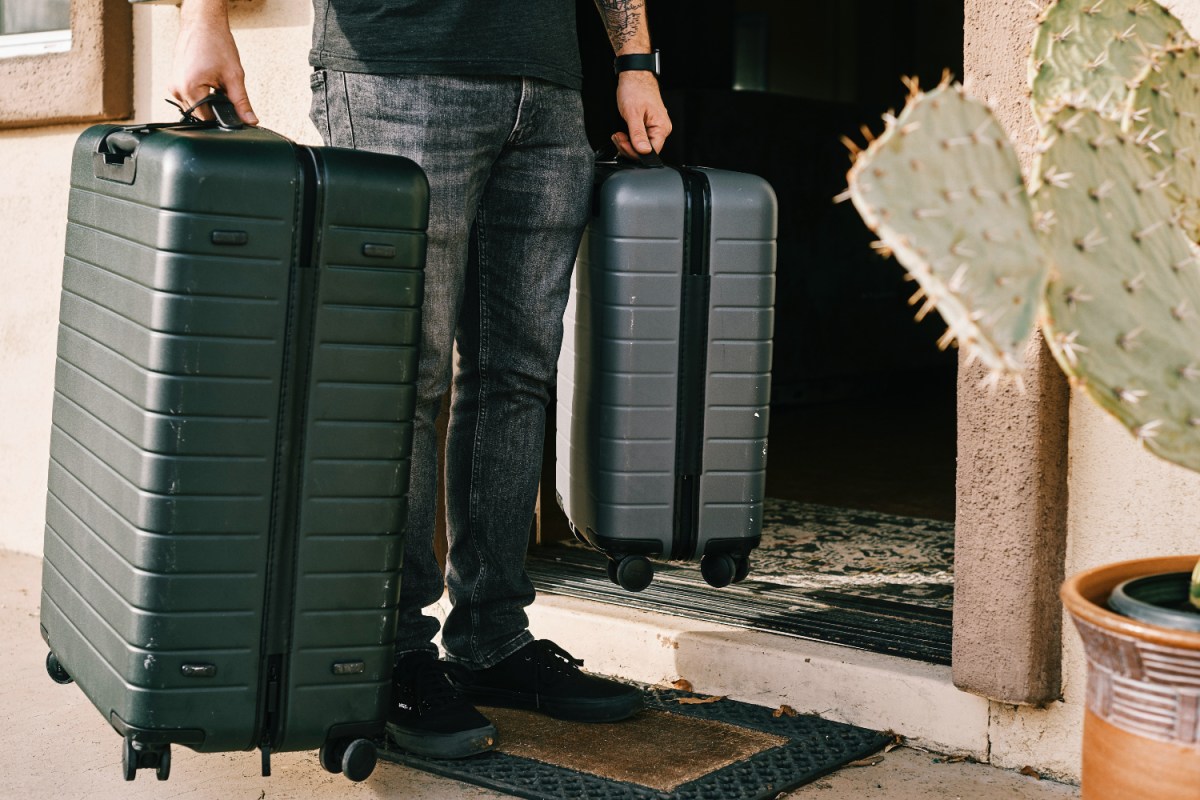If you’ve been to an airport at any point in the past few decades, chances are you were probably accompanied by a suitcase on wheels. You would have brought this item with you because wheeling your luggage along behind or beside you is objectively more convenient than needlessly hauling it through the airport. Up until the last quarter of the 20th century, however, no self-respecting man would be caught dead wheeling anything through an airport, train or bus station, because apparently doing so would be considered “unmanly.” Real men, it seems, didn’t need to bother with feminine frivolities like convenience or modern technology when they had the brawn to manhandle their luggage themselves.
This mentality was so widely accepted for so long that the rolling suitcase wasn’t even invented until 1972 — or that’s how the official story goes, anyway. However, as Jezebel’s Emily Alford revealed in a recent article, we had the technology to put wheels on luggage well before that — after all, if we can put a man on the moon, surely we can slap some wheels on a suitcase. In fact, according to Katrine Marçal, author of How Good Ideas Get Ignored in an Economy Built for Men, resourceful female travelers blissfully bereft of any masculinity to guard had already been making use of various wheeled contraptions to get their luggage from point A to point B more easily for decades.
Unfortunately, like most things women enjoy, that enjoyment only made men push back harder against the obvious convenience of the rolling suitcase, in some cases even punishing women for daring to put luggage on wheels. Marçal recounts an instance in 1967 in which a woman was forced to purchase an extra bus ticket for her rolling suitcase on the grounds that “anything on wheels should be classed as a pushchair.” In turn, the woman — who later wrote a lengthy letter of complaint to her local newspaper — questioned whether she herself would be “charged as a passenger or as a pram” had she boarded the bus wearing roller skates.
Indeed, men of that era seemed to believe that wheeling a suitcase around was basically the equivalent of pushing around a baby stroller, which was obviously humiliating and effeminate. Wheels? No thank you, not for this manly man — unless of course they happen to be attached to a car, in which case they are specifically for men.
This anti-wheels sentiment proved so persistent that even after the rolling suitcase finally made it to the mainstream market in the 1970s, it was still a tough sell for consumers of the day. “Two assumptions about gender were at work here,” writes Marçal. The first, of course, “was that no man would ever roll a suitcase because it was simply ‘unmanly’ to do so.” But what about women? Well, according to the mores of the day, no civilized woman would be traveling alone anyway, because doing so would be … dangerous? Unfeminine? Proof that no man loved you enough to lug your un-wheeled suitcase around for you? Either way, the prevailing belief at the time was that “if a woman travelled, she would travel with a man who would then carry her bag for her,” and thus have no need for a rolling suitcase.
Thus, it took a solid 15 years for rolling suitcases to go mainstream, when they were finally embraced by male and female consumers alike in the mid 1980s. In other words, we spent several decades longer than necessary needlessly schlepping luggage through airports and train stations, all because men were afraid of wheels.
Thanks for reading InsideHook. Sign up for our daily newsletter and be in the know.

















